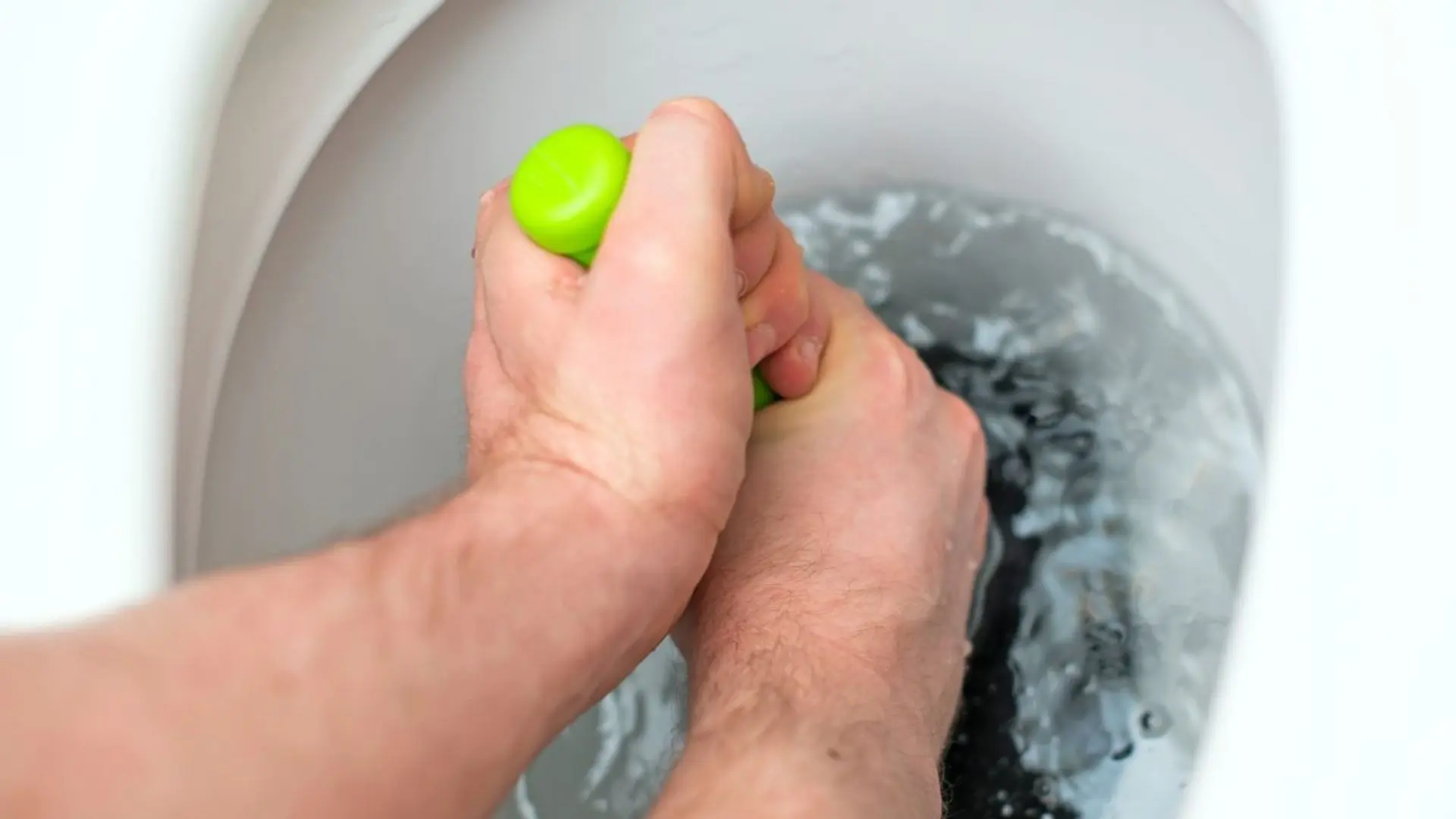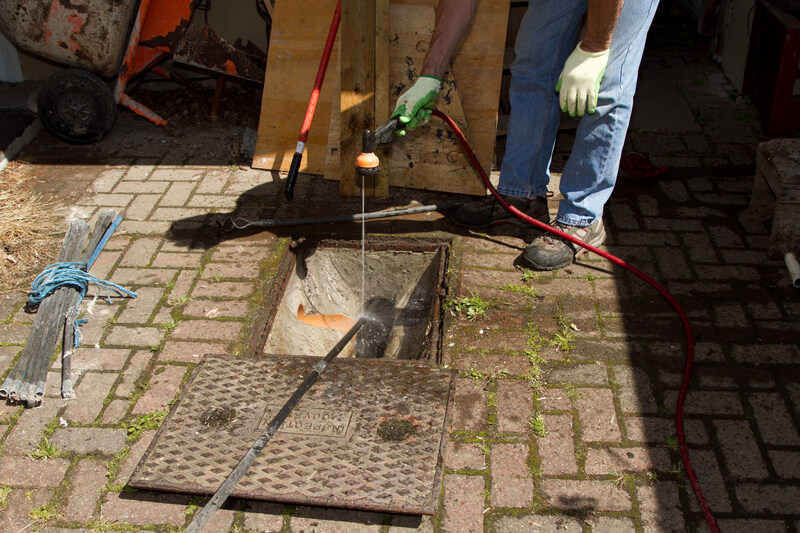Guidelines for Managing a Blocked Drain Prior to Seeking Professional Plumbers
Guidelines for Managing a Blocked Drain Prior to Seeking Professional Plumbers
Blog Article
The article further down on the subject of Tips for Dealing with Clogged Drains and Sewer Lines is immensely engaging. Check it out for your own benefit and decide what you think about it.

Intro
Managing a blocked drainpipe can be an aggravating experience, interrupting day-to-day tasks and possibly triggering damage to your home. Nevertheless, before reaching out to plumbing specialists, there are steps you can require to address the concern on your own. In this guide, we'll explore do it yourself remedies and preventive measures to take on a blocked drain efficiently.
Recognizing the Concern
The primary step in resolving an obstructed drainpipe is identifying the indicators. Sluggish drainage, gurgling audios, foul odors rising from drains pipes, or water backing up prevail signs of a blocked drain. Identifying these indications early can help protect against better issues.
Common Root Causes Of Obstructed Drains
Comprehending the factors that contribute to drain pipes clogs is crucial for effective resolution. Typical wrongdoers consist of hair, soap scum, grease, food debris, and international things like sanitary products or paper towels. Tree roots getting into below ground pipelines can additionally create substantial clogs.
DIY Solutions
For minor clogs, numerous do it yourself remedies can be reliable. Putting boiling thin down the drain can help dissolve grease and particles. Sodium bicarbonate and vinegar or a mixture of salt and baking soft drink can function as natural cleaners. Utilizing a bettor or pipes serpent to remove obstructions is another alternative.
Tools and Equipment
Having the right devices available can make do it yourself drain cleaning a lot more efficient. A plunger is a versatile device for removing clogs in sinks, bathrooms, and showers. A pipes snake or auger can get to much deeper clogs, while drain cleansing chemicals can be made use of carefully for stubborn blockages.
Safety nets
To stay clear of future blockages, adopting preventive measures is vital. Mount drain guards or strainers to catch hair and debris before they go into the pipelines. Frequently flush drains pipes with warm water to liquify grease accumulation, and prevent disposing of oil or strong waste away.
When to Call a Professional
While DIY solutions can fix small obstructions, certain indicators indicate the need for professional aid. Relentless obstructions, foul odors in spite of cleansing initiatives, or multiple drains supporting concurrently are red flags that warrant experienced intervention.
Choosing the Right Plumbing Solution
When choosing a pipes service, consider aspects such as experience, licensing, and customer evaluations. Pick a reputable plumbing professional with a track record of high quality handiwork and clear rates techniques.
Cost Considerations
The expense of expert drainpipe cleaning company can differ relying on the intensity of the obstruction and the plumbing professional's prices. Demand quotes from numerous carriers and ask about any kind of service charges to make sure transparency and avoid surprises.
Safety and security Measures
When attempting do it yourself drain cleansing, focus on safety. Put on protective handwear covers and eyewear to stay clear of contact with dangerous chemicals or germs. Never mix different drain cleaning items, as this can create dangerous fumes.
Case Researches
Real-life examples highlight the efficiency of do it yourself options and the significance of prompt professional treatment in dealing with drainpipe blockages.
Final thought
By adhering to the suggestions laid out in this overview, you can efficiently take on obstructed drains and avoid future plumbing problems. Whether opting for DIY services or seeking expert help, punctual activity is vital to keeping a healthy plumbing system and protecting the integrity of your home.
WHAT I LEARNED FROM TRYING TO DEAL WITH A CLOGGED DRAIN
We have had our share of seepages and other annoying things that are part of living, especially in an apartment complex. And if there’s one thing that’s terrifying for a homeowner—or even someone in a rented home—it is a clogged drain, indoors or outdoors.
We enjoy our living space, but it’s simply a fact of life that dead skin, soap and a host of other items go down the drain; eventually, the residue builds up and prevents anything from moving. Ugh.
Not Calling A Professional
Of course, it might seem simple to just whip the pipe off under the sink and see if you can unblock it. Unfortunately, what if the blockage isn’t there, or you don’t reconnect it properly? Worse, you might break a piece and have no drainage system. Can you imagine that scene? Yuck!
Not Watching Your Waste
This will sound d’uh, but the best tip I can give you for drain cleaning is to avoid clogging the drain in the first place! You can do this by monitoring what goes down the drain and catching the items which are most likely to give you a problem. Invariably hair, vegetable peels, and large wads of toilet paper are the most obvious culprits. Add a filter—these are available in hardware stores and can be removed and cleaned easily.
Poking The Drain
The first urge with a clogged drain is to poke at it with a stick or anything that resembles a stick. Sadly, this does not result in magically solving the issue. The mental image is, naturally, one of the stick just pushing through the offending item and all is well again. Reality is quite different and unpleasant and likely to lead to further problems.
The thing is, every drain has a series of bends that are not visible to us. Drains are built this way to prevent gases from entering the house. What happens when you poke a stick into the drain? Of course, it can’t bend around the corner. The more adventurous people will use force and end up wedging the stick or causing it to break off in the pipe—creating an even bigger issue. Worst thing? The stick will shift the block further down the pipe, creating the space for more to collect. Go ahead! Roll your eyes!
Using The Wrong Plunger
You know what they say: the right tool for the right job! Did you know there are different types of plungers besides the basic one we keep at home for an emergency? Yes, there are. For example, the toilet plunger has a bell-shaped bottom while the sink plunger is flat. This is an important difference and using the wrong plunger will be useless. There’s also a knack in using plungers—they must be placed in such a way that they create an airtight seal and then, moved slowly up and down—not as fast as we imagine.
https://vidyasury.com/2018/01/learned-trying-deal-clogged-drain.html

I recently found that article on How to handle a clogged drain in your home while scouting around the web. Enjoyed reading our article? Please quickly share it. Help somebody else check it out. I praise you for your time. Don't hesitate to stop by our blog back soon.
Click Here Report this page